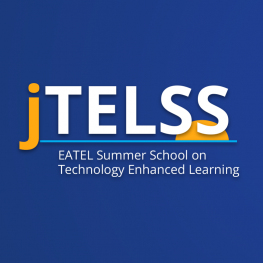Speakers
Linda Helene Sillat
Tallinn University, EstoniaKairit Tammets
School of Digital Technologies, Tallinn University, EstoniaPirgit Sillaots
Tallinn University, EstoniaStart
08/06/2023 - 10:30
End
08/06/2023 - 12:00
Conducting multi-stakeholder expert studies – from Delphi study to Nominal Group Technique
Monday 08/06 10:30-12:00h
Workshop Space A
Abstract
Research methods used in the field of technology enhanced learning (TEL) belong to the emerging generative research paradigm where researchers are actively engaged in contributing to understanding and challenging problems in real life settings. It can be considered that TEL research focuses on optimising and supporting teaching and learning processes. The scope of research includes a variety of educational settings and consequently includes a wider set of stakeholders. Still, looking into research problems through a multi-stakeholder prism is not common. The workshop explores the topic of multi-stakeholder TEL research by offering methodological insights on how to analyse the scope of research, engage participants and design an expert studies by implementing structured and interactive group based research methods.
Needs Analysis
Large part of technology enhanced learning related research takes place in educational settings where the research subjects include students, teacher, school leaders etc. Meaning that educational research investigates education from a multi-stakeholder perspective. This includes researchers, policymakers, local municipalities, school leaders, IT-specialists, educational technologists, in-service teachers, pre-service teachers and beyond. Based on the Tallinn University Centre for Educational Technology EU projects example the workshop will discuss how to design and engage in multi-stakeholder research and what conclusions it enables to make focusing on underlying TEL research problems. Participants will have a chance to analyse and position their research problem in the wider scope and collaboratively discuss gaps and needs for conducting expert studies. This workshop will enable participants to position their research in the wider context of TEL research.
Learning Objectives
Participants will get an in depth view on how to design and conduct multi-stakeholder expert research in the field of TEL. Get an overview of alternative methods, including Delphi study, Network Value Creation research and Nominal Group Technique. Finally, the workshop will focus on multi-stakeholder research from methodological perspectives.
Pre-activities
The participants will receive three articles which explain the concepts and use of Delphi study, NGT and finally multi-stakeholder TEL research.
Session Description
- Presentation (25 minutes, including examples)
What do we consider multi-stakeholder expert study in TEL?
How to design and engage in multi-stakeholder expert study?
How to map the scope of stakeholder in research?
Introduction to expert study methods – Delphi study and Nominal Group Technique. - Practical assignment (15 minutes, including short discussion)
Participants will analyse their own research problems and positioning their focus based on the underlying TEL research topics. - Practical activities in groups (40 minutes, guided by the workshop authors)
Participants will be divided into groups based on the research problems and look into the commonalities between the research focus. Analyse stakeholder groups involved in their research and how expert studies can be used. Understanding how qualitative expert studies can support research goals. - Conclusion and summary (10 minutes)
- Round table to solve any questions and topics participants have and to share ideas.



